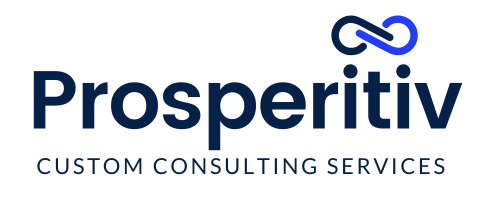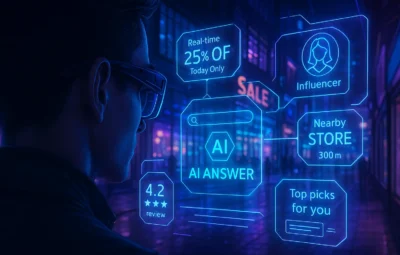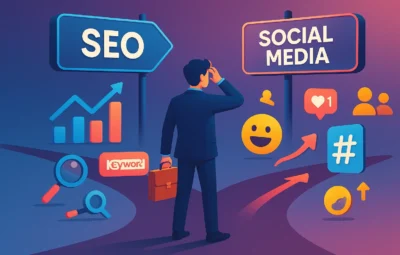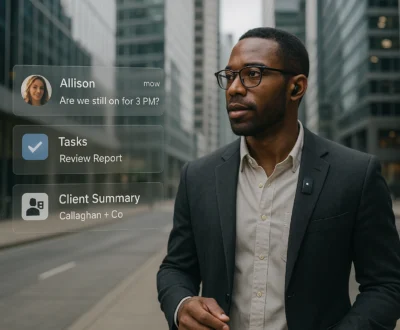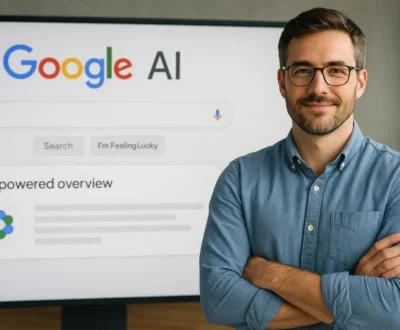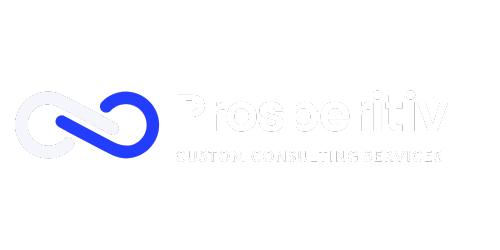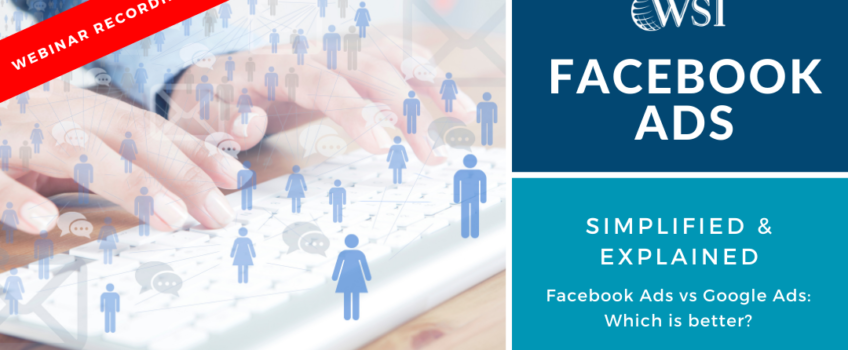
When it comes to social media, whether it’s for personal or business purposes, almost everyone knows and uses Facebook. The truth is, with 2.85 billion monthly users and powerful algorithms, few platforms offer the versatility and reach of Facebook ads. It’s become one of the most effective tools for growing your business and here is an overview of how it all works and successful case studies.
Inside, you will also have access to a webinar recording of Jack Porter-Smith, Managing Director at WSI Paid Search. He was also one of the world’s first 5 Google Ads Top Contributors in 2009 and was nominated to the Google Agency Executive Council in 2019.
The Power Of Facebook Ads
Facebook ads can do anything, and for anyone. You can use it for lead generation, online sales and even donations whether it’s B2B, B2C or NFP. Many companies prefer using Facebook ads which are particularly handy for event registrations, newsletter subscriptions/sign-ups or downloads like an e-Book, for example.
When it comes to lead targeting, Facebook is right at the top as it knows so much about all the users. It’s this information that helps advertisers reach the right people with the right message. Due to this incredible accuracy in targeting specific groups of people, the platform attracts nearly 10 million active advertisers resulting in earnings for Facebook of around $28 billion per quarter (£20.2 billion).
How Facebook Ads Work
The success of your Facebook ads relies on personas (lookalike audiences) which means the more information you have on your potential customers, the better. It targets users based on location, demographic and general profile information with many of these options only available on Facebook.
With the right codes configured on your site/app, you can measure the following:
- Traffic data such as impressions, clicks, views, frequency and CPC
- Conversion value or E-commerce value
- ROAS (Return on Ad Spend)
- Conversions (leads, calls, purchases and downloads)
- Site funnel behaviour such as users adding products to a basket but then abandoned
How Much Should You Spend On Facebook Advertising?
Once you’ve created an ad, you then set a budget and bid for each click or thousand impressions that your Facebook ad will receive. There may be differing opinions on ad spend but for best results, you should consider $30-60 per day.
Looking at a 90-day cycle, the secret to success lies in monitoring approvals, conversion tracking and quality from the time of launch. After 30 days there should be a baseline that you can use for ad optimisation. This is where you look at the results, remove wastage and double down on positives.
Repeat this process after 60 days and then after 3 months, evaluate everything, make the necessary changes, scale and start again. Have a look at this beginner's guide to using Facebook for advertising.
Quick Look At Lead Generation (Quality versus Quantity)
What works for another business may not work for you so it’s important to collect the right data, evaluate and optimise accordingly. With that in mind, how you approach Facebook ads is also important.
You can either opt for more leads with a lower closing rate or fewer leads with a higher closing rate. The decision will impact your business from strategy and campaign type to using the right CTA and ad budgeting. Have a look at this example:

Types Of Facebook Ads
There are various types of Facebook ads that can be used for anything from promoting your Page, posts on your Page, actions users take or your website itself. Although Facebook has put a bigger focus on native ads and keeping traffic on its site, if you know what you’re doing, you can still send users to your website.
In addition to the types of ads, there are also several ad formats. This includes images, videos, carousel (multiple images), Instant Experiences and collections. Facebook ads show on mobile or desktop versions offering various options. They can click to visit your website, chat to you in Messenger, call you, Like your page and fill in a form within the ad (lead form).
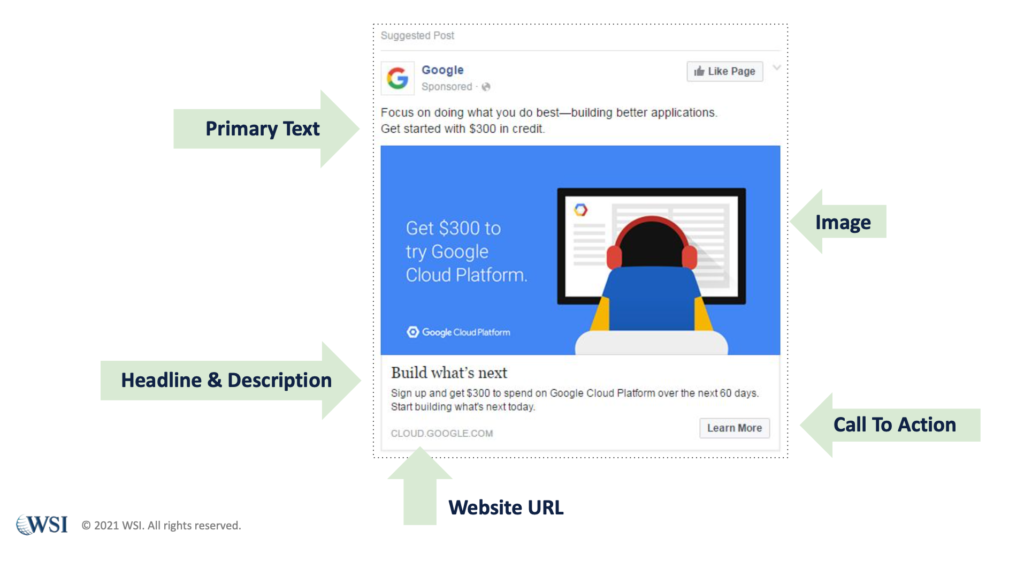
Here are the types of Facebook ads you can choose from:
- Image ads
- Video ads
- Poll ads
- Carousel ads
- Slideshow ads
- Collection ads
- Instant Experience ads (formerly known as Canvas)
- Lead ads
- Dynamic ads
- Stories ads
- Augmented Reality ads
- Messenger ads (this is the secret weapon you may not know about)
Get Next-Level Engagement Using Facebook Messenger Ads
Facebook Messenger ads may just be one of the best ways to advertise, especially since Facebook combined its messaging back-end with Instagram. With this, you have access to the 1.3 billion people who use Facebook Messenger every month so it might be a good idea to seriously consider this ad type.
When creating your Facebook ad, choose Messenger as the desired placement and remember to also select Facebook feed. Another option is running “click-to-Messenger” ads in your Facebook feed where they feature a call-to-action button.
When visitors click on this, it opens a Messenger conversation with your Facebook Page which enables people to have a one-on-one conversation with one of your salespeople or customer service representatives.
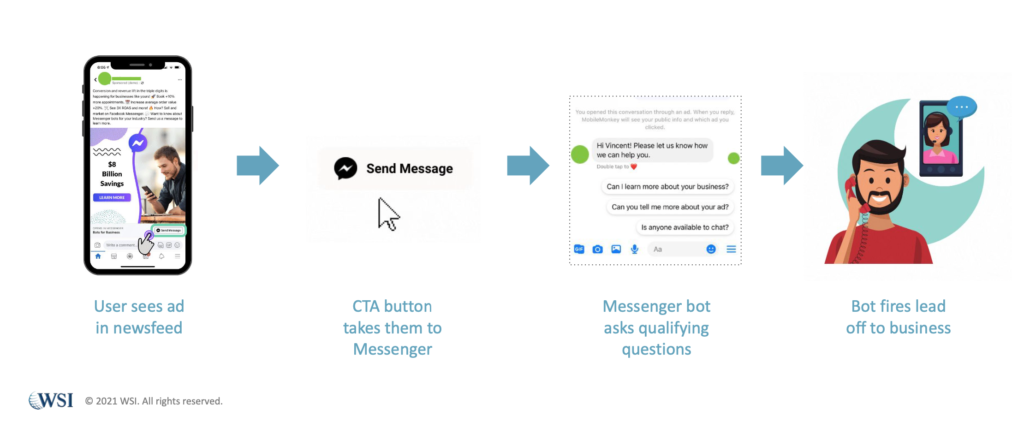
Facebook Ads Or Google Ads; Which Is Better?
In terms comes of paid media, Facebook Ads and Google Ads are the biggest in the market but which one if better for your business?
In all honesty, it’s not a matter of one or the other but rather a balanced approach as both have their merits. Here’s a quick comparison that should shed some light on each platform.
Google Ads (Paid Search)
Google Ads (formerly AdWords) has been so widely used that it personifies the term “paid search” where it focuses on targeting keywords and using text-based adverts. Here, advertisers use Google Ads to bid on keywords or phrases which may be included in search terms users enter. The goal is that their ads will be displayed alongside search results for specific queries.
Every time a user clicks on an ad, the advertiser is charged a certain amount which explains the name “pay-per-click advertising” or PPC. In a nutshell, people pay for the possibility of finding new customers based on keywords and search terms which they might enter into Google when looking for a product or service.
Recommended: 'How To Optimise Your PPC Campaigns'
Facebook Ads (Paid Social)
Facebook advertising is what is called “paid social” or the practice of advertising on social media networks. Whilst advertisers use Facebook and Google to promote their business on the Internet, that’s about all these platforms have in common.
Unlike paid search helping businesses find new customers through keywords, paid social helps users find businesses based on things that interest them and how they behave online. To put it one sentence - Google ads “serve demand” whilst Facebook ads “create demand”.
For more expert advice on how to grow your business using Facebook ads, watch the webinar recording and change your advertising strategy today! Jack shares some ad examples as well as B2B and B2C case studies.
Recent Posts
Popular Posts
About us and this blog
We are a digital marketing company with a focus on helping our customers achieve great results across several key areas.
Request a free quote
We offer professional SEO services that help websites increase their organic search score drastically in order to compete for the highest rankings even when it comes to highly competitive keywords.
Subscribe to our newsletter!
More from our blog
See all postsRecent Posts
- The Dark Side of Customer Data Protection: Why Trust Starts With Your CRM January 9, 2026
- Are AI Summaries Killing Your Traffic — or Creating a New Opportunity? September 11, 2025
- Synthetic Intelligence Is Coming. What SMEs Should Know August 29, 2025
